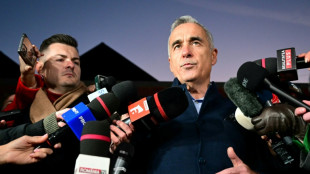
-
 Namibia reopens polls after election chaos in ruling party test
Namibia reopens polls after election chaos in ruling party test
-
Georgia police arrest dozens in clashes with pro-EU protesters

-
 US stocks rise on Black Friday
US stocks rise on Black Friday
-
Leclerc on top for Ferrari in Qatar GP practice

-
 Jihadists, allies enter Syria's second city in lightning assault
Jihadists, allies enter Syria's second city in lightning assault
-
Amorim puts faith in Mount to turn around Man Utd career

-
 Guardiola will not 'run' from Man City rebuild
Guardiola will not 'run' from Man City rebuild
-
Assisted dying campaigners, opponents rally at UK parliament

-
 Durable prop Healy set to carve name in Irish rugby history
Durable prop Healy set to carve name in Irish rugby history
-
Macron unveils Notre Dame after 'impossible' restoration

-
 Traumatised Spain marks one month since catastrophic floods
Traumatised Spain marks one month since catastrophic floods
-
Yen rallies, euro up on rising inflation data

-
 Attack-minded Spurs boss Postecoglou says: 'You'll miss me when I'm gone'
Attack-minded Spurs boss Postecoglou says: 'You'll miss me when I'm gone'
-
Syria jihadists, allies shell major city Aleppo in shock offensive

-
 Macron inspects 'sublime' Notre Dame after reconstruction
Macron inspects 'sublime' Notre Dame after reconstruction
-
Arsenal must be near-perfect to catch Liverpool, says Arteta

-
 Arrests, intimidation stoke fear in Pakistan's politics
Arrests, intimidation stoke fear in Pakistan's politics
-
Showdown looms on plastic treaty days before deadline
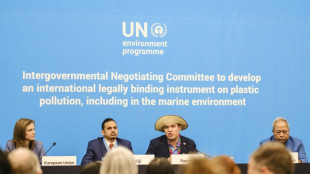
-
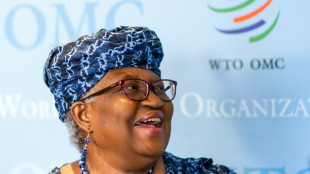 Ngozi Okonjo-Iweala: the WTO's trailblazing motivator
Ngozi Okonjo-Iweala: the WTO's trailblazing motivator
-
WTO chief reappointed as Trump threat looms

-
 US landmine offer to Ukraine throws treaty into 'crisis': campaign group
US landmine offer to Ukraine throws treaty into 'crisis': campaign group
-
British MPs debate contentious assisted dying law

-
 Macron offers first glimpse of post-fire Notre Dame
Macron offers first glimpse of post-fire Notre Dame
-
Syria jihadists, allies shell Aleppo in shock offensive

-
 Japan government approves $92 bn extra budget
Japan government approves $92 bn extra budget
-
Toll in Syria jihadist-army fighting rises to 242: monitor

-
 UK transport secretary quits in setback for Starmer
UK transport secretary quits in setback for Starmer
-
Days before deadline, plastic treaty draft highlights disagreement
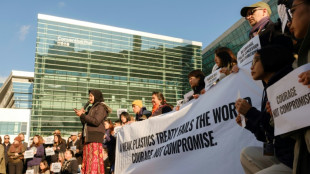
-
 Crypto boss eats banana art he bought for $6.2 million
Crypto boss eats banana art he bought for $6.2 million
-
Teen news boss criticises Australian social media ban

-
 Taiwan detects 41 Chinese military aircraft, ships ahead of Lai US stopover
Taiwan detects 41 Chinese military aircraft, ships ahead of Lai US stopover
-
Spain urged to 'build differently' after deadly floods

-
 WTO chief faces heavy task as Trump threat looms
WTO chief faces heavy task as Trump threat looms
-
Herbert takes control at Australian Open as Smith tanks

-
 Israel PM again warns Iran after top diplomat talks of revising nuclear doctrine
Israel PM again warns Iran after top diplomat talks of revising nuclear doctrine
-
Brilliant Brook's 132 puts England on top against sloppy New Zealand

-
 Brilliant Brook's 132 puts England on top against New Zealand
Brilliant Brook's 132 puts England on top against New Zealand
-
US landmine offer to Ukraine throws global treaty into 'crisis': campaign group

-
 Singapore hangs 4th person in three weeks
Singapore hangs 4th person in three weeks
-
Five things to know about NewJeans' shock split from agency

-
 Waste pickers battle for recognition at plastic treaty talks
Waste pickers battle for recognition at plastic treaty talks
-
Ireland votes in closely fought general election

-
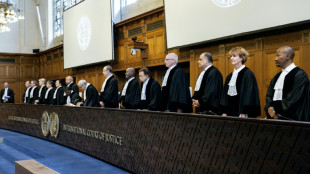 Top UN court to open unprecedented climate hearings
Top UN court to open unprecedented climate hearings
-
European countries that allow assisted dying

-
 British MPs to debate contentious assisted dying law
British MPs to debate contentious assisted dying law
-
Schmidt not expecting hero's welcome on Ireland return

-
 PSG stuck between domestic dominance and Champions League woes
PSG stuck between domestic dominance and Champions League woes
-
'Hot fight' as unbeaten Bayern visit Dortmund fortress

-
 Bordeaux-Begles' Samu 'not finished yet' with Wallabies
Bordeaux-Begles' Samu 'not finished yet' with Wallabies
-
Brook and Pope half-centuries haul England to 174-4 against NZ


Chips industry goes all-in on AI
It's been a wild few years for the microchip industry, recovering from a long-term supply squeeze only to be thrust into the centre of a US-China battle to control supply lines of the valuable technology.
But an industry long associated with volatility is quietly getting excited that artificial intelligence (AI) could be the key to some longer-term stability.
US firm Nvidia dominates the market in specialised chips known as GPUs, which happen to be ideal for training AI programmes like the wildly popular chatbot ChatGPT.
"Technology trends are working in Nvidia's direction," the firm's vice president Ronnie Vasishta told AFP this week at the Mobile World Congress (MWC) in Barcelona.
This has helped make Nvidia the biggest company in the sector -- and one of the biggest firms of any kind in the United States -- with a valuation of $580 billion.
Traditional rivals like Intel and Qualcomm are now on manoeuvres, desperate to make sure they do not miss out.
The tiny components, also known as semiconductors, are essential in everything from smartphones, PCs and electric cars to sophisticated weaponry, robotics and all other high-tech machinery.
AI already features heavily in all of these fields, and the advent of chatbots is only pushing it further into the public imagination.
Even in a sector where low-key engineers do the talking, the enthusiasm is palpable.
- 'Scratching the surface' -
"The most exciting thing right now is AI," Cristiano Amon, boss of rival firm Qualcomm, told a Wall Street Journal event at the MWC.
He wants the world's phones to be tooled up with chips able to handle even the most tricky AI-related tasks, largely because Qualcomm leads the field in phone chips.
Vasishta is equally enthused.
"Where and how does AI get used? It's probably going to be easier to answer where is it not getting used," he said.
Another chip firm, the British-based Arm, is even further back in the production chain than Nvidia -- it provides the designs used by chip suppliers.
The firm's Chris Bergey told AFP there was massive potential with AI.
The kind of chips Nvidia produces are great for training AI models in data centres, he said, but smartphones need chips that can act based on those models.
"It's a huge opportunity and it's ubiquitous," he said.
He compares the AI revolution to the onset of apps, which appeared about 15 years ago and rapidly changed the way we used technology.
"Definitely AI is something that has a lot of interesting applications and we're still scratching the surface of where we'll go."
- 'Too cool' -
Yet, with chips, nothing is straightforward.
The supply chain is fiendishly complex -- consulting firm Accenture reckons a chip crosses borders 70 times before it ends up in a phone, camera or car.
Countries like China and the United States would prefer to have greater control.
And there is an added problem: the factories that make most of the world's chips are in Taiwan, a self-ruled island that China claims.
This could bring China and the United States into direct conflict.
Mild-mannered as ever, semiconductor executives will not be drawn into discussions on these issues.
"We don't have really a position on the geopolitics, we comply with all the US regulations that are required as a US company," said Vasishta.
Bergey, who has spent 25 years in the industry, said he had seen chips lurch from being "very cool" to "very boring".
"They're cool right now, perhaps too cool with too much attention," he said.
"It's a dynamic thing the industry is dealing with and we'll have to see how these things play out."
P.Anderson--BTB


